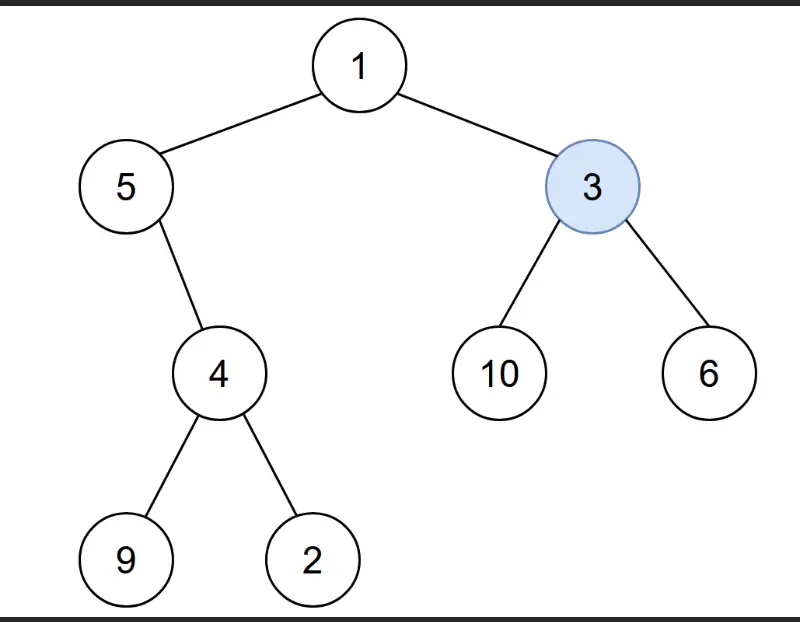Problem Statement:
You are given the root of a binary tree with unique values, and an integer start. At minute 0, an infection starts from the node with value start.
Each minute, a node becomes infected if:
- The node is currently uninfected.
- The node is adjacent to an infected node.
Return the number of minutes needed for the entire tree to be infected.
Example 1:

Input: root = [1,5,3,null,4,10,6,9,2], start = 3 Output: 4 Explanation: The following nodes are infected during:
- Minute 0: Node 3
- Minute 1: Nodes 1, 10 and 6
- Minute 2: Node 5
- Minute 3: Node 4
- Minute 4: Nodes 9 and 2 It takes 4 minutes for the whole tree to be infected so we return 4.
Solution:
class Solution {
public int amountOfTime(TreeNode root, int start) {
Map<Integer, List<Integer>> adjList = new HashMap<>();
convertToGraph(root, adjList);
Queue<Integer> q = new LinkedList<>();
HashSet<Integer> visited = new HashSet<>();
q.add(start);
int time = -1;
while(!q.isEmpty()){
int size = q.size();
//work
time++;
for(int i = 0; i < size; i++){
//remove
int currNode = q.poll();
//mark*
visited.add(currNode);
//add*
if(adjList.containsKey(currNode)){
for(Integer nbr: adjList.get(currNode)){
if(!visited.contains(nbr)){
q.add(nbr);
}
}
}
}
}
return time;
}
private void convertToGraph(TreeNode node, Map<Integer, List<Integer>> adjacencyList) {
if (node == null) {
return;
}
if (node.left != null) {
adjacencyList.computeIfAbsent(node.val, k -> new ArrayList<>()).add(node.left.val);
adjacencyList.computeIfAbsent(node.left.val, k -> new ArrayList<>()).add(node.val);
}
if (node.right != null) {
adjacencyList.computeIfAbsent(node.val, k -> new ArrayList<>()).add(node.right.val);
adjacencyList.computeIfAbsent(node.right.val, k -> new ArrayList<>()).add(node.val);
}
convertToGraph(node.left, adjacencyList);
convertToGraph(node.right, adjacencyList);
}
}